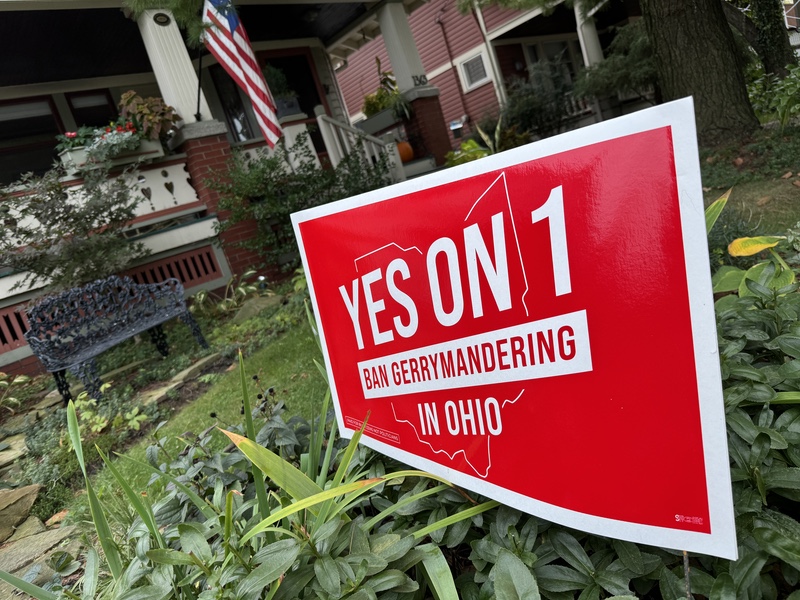The concept of one person/one vote is basic to our democracy. Whether you live on East 55th or West 65th — Eastlake or Westlake, your vote should have the power to elect a person to Congress or the state legislature that reflects your voice or the voice of your community.
But that is not always the case. Legislators who draw the boundaries for congressional and legislative districts often use a system known as gerrymandering to maneuver political subdivisions so that rather than the voter picking the politician, the politician picks the voters. And the voters they pick are always voters that share their political persuasion.
That’s why it is so important to vote yes on Issue 1 on the November ballot. The proposed constitutional amendment removes elected officials from drawing congressional and state legislative districts and will end gerrymandering.
Under the Issue 1 proposal, a 15-member panel of five Republicans, five Democrats and five independents will draw the maps for legislative districts. As reported by a national redistricting expert to the Statehouse News Bureau in August 2024, “The Ohio plan that’s on the ballot this November (Issue 1) comes the closest to being a silver bullet to getting fair redistricting.”
Maps drawn under the current system have been ruled unconstitutional seven times. In August of 2023 Republican Governor Mike DeWine admitted that the state’s current redistricting system “doesn’t work very well.” He went on to tell News5 Cleveland that “he doesn’t think politicians like him should get to decide the maps.”
Issue 1 has broad bipartisan support. Former Chief Justice of the Ohio Supreme Court Maureen O’Conner — a Republican — has been the face of the Vote Yes on Issue 1 campaign and joins with Democrats and other Republicans from around the state to promote its passage.
Over the course of American political history, both parties have become adept at the practice of drawing boundary lines for districts to pick the voters that are most favorable to their political beliefs. But members of the Republican-controlled Ohio legislature have taken the practice to new heights. That’s even though a constitutional amendment passed in 2015 says that the Ohio redistricting commission shall attempt to draw lines for general assembly districts that shall not favor or disfavor a political party.
Ohio’s 4th Congressional District, a seat currently held by Republican “Jacketless” Jim Jordan, is a classic example of how the Ohio legislature makes sure their friends run from a safe district with a majority of Republican voters. The district has at least 32 sides, depending on how you count, and is comprised of 13 counties and all or parts of 10 cities. Why such an irregular shape? Jordan’s Republican buddies in the legislature want to make sure that his district is made up of Republican households and made every attempt to cut out Democratic voters from Jordan’s district.
As Supreme Court Justice William O. Douglas so aptly stated:
The conception of political equality, from the Declaration of Independence to Lincoln’s Gettysburg Address, to the Fifteenth, Seventeen, and Nineteenth Amendments can mean only one thing – one person one vote.
Vote Yes on Issue 1 to make sure that Ohio has one person – one vote.
C. Ellen Connally is a retired judge of the Cleveland Municipal Court. From 2010 to 2014 she served as the President of the Cuyahoga County Council. An avid reader and student of American history, she is a former member of the Board of the Ohio History Connection, and past president of the Cleveland Civil War Round Table, and is currently vice president of the Cuyahoga County Soldiers and Sailors Monument Commission. She holds degrees from BGSU, CSU and is all but dissertation for a PhD from the University of Akron.
Read the original piece here.

